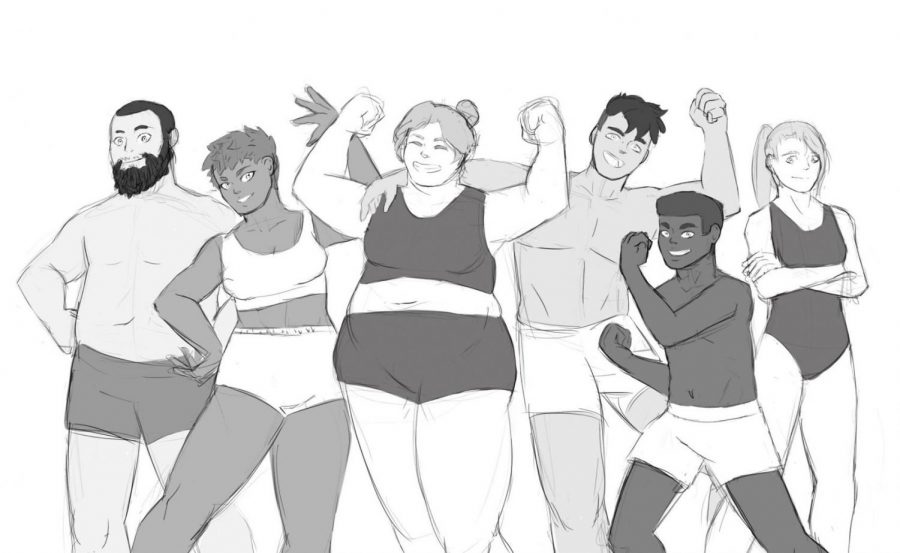The One-Sided Nature of Body Positivity
October 5, 2020
The way we study our reflections in the mirror, pinpointing and magnifying each and every imperfection, provokes an all-too-familiar twinge of uneasiness. There seems to be a never-ending search for areas of our bodies to change, and if we fail to find a problem, we create one to fix. In the process, we begin to expect others to fit our personal standards, creating an image of the ideal body type and, in turn, the ones to be avoided.
So, when there comes a fresh mindset to embrace rather than criticize our insecurities, people spread the idea. We watch as the concept of body positivity weaves itself into the media and through to the industry, where representation becomes increasingly important to the public. However, though the body positivity movement successfully emphasizes the empowerment of diverse body types, it primarily focuses on women, so far neglecting to address the other side of the spectrum: men.
There continues to be only one accepted body type for men: tall and muscular with defined, “masculine” facial features. Why? People traditionally view men as the protector, so they favor the appearance of a strong body. Because of this, we tend to equate skinny to weak and overweight to lazy, and people shamelessly criticize men whose bodies do not represent the socially accepted ideal. An FMHS student notes, “I don’t think that body positivity really includes everyone. It’s very one-dimensional for men. Unless you have a certain body type, people don’t think you’re attractive, even though you don’t really have to have the supermodel body to be healthy.”
Women and men both experience the burden of societal pressures on their physical appearances, but the social stigma encourages men to suppress their emotional opinions in order to maintain the facade of masculinity. In the end, however, insecurity does not discriminate when choosing its host. As we work towards a more inclusive world, we must be sure to consistently uplift the people in our lives, as we never know what battles they may be facing before the mirror. The idea of body positivity must expand to match its definition: regardless of all else, every body represents beauty.


rihannan • Mar 30, 2022 at 8:25 PM
yes, i can agree the body positivity movement is always targeted to women only, but i have to say that its also one-sided in another way–the movement specifically targets overweight people to feel good in their bodies, acting like underweight people shouldn’t be considered and included. just sayin :/
sara • Mar 30, 2022 at 8:21 PM
We should also regard people of all body sizes as well, not only overweight people can feel sensitive about their body image, skinny and lightweight people can too. I have been bullied all my life for being skinny. Many give me bad looks, calling me skin and bones and bullying me at lunch at my school, so much so that it pains me to look at my reflection in public, and that makes me feel ugly. And not surprisingly, overweight people are the ones who ALWAYS target me for bullying on my weight.